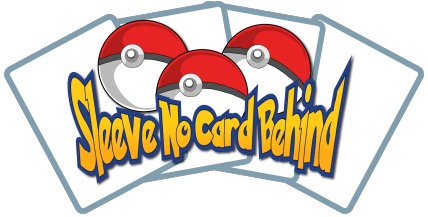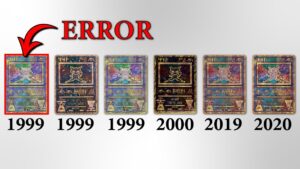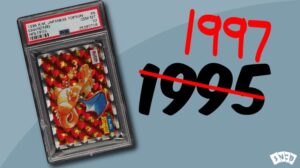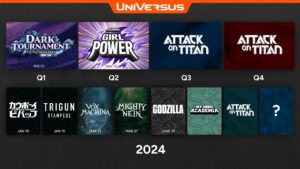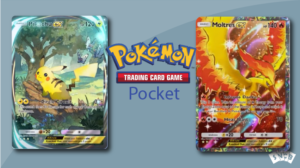Best Places to Buy Yu-Gi-Oh! Cards Second Hand
-
By: Oliver Copeland
- Published:
- Last Updated: December 3, 2023
Since the recent boom in the hobby of trading card collecting, hobbyists are digging deeper and expanding their search for cards. The industry was recently hit hard by the scalping community, leaving most store shelves barren.
One of the irresistible draws to the hobby is finding that one big break. The possibility of purchasing someone’s long-lost childhood collection sits idly at the back of everyone’s mind. The chance of finding an original Blue Eyes at a garage sale is so small but so tempting. So where is the best place to find old cards?
Local options
When searching for second-hand cards, there are actually a lot of options. Let’s break them down into categories.
Thrift stores, Second-hand stores, Consignment stores
These are establishments that receive old Yu-Gi-Oh cards on a regular basis, often underpricing them due to inexperience or lack of exposure to the hobby. Virtually everyone knows that trading cards, whether it be sports, Yu-Gi-Oh, or other TCGs, can be valuable. For this reason, they are often kept behind the counter or in a glass display.
However, to price each card out takes time and know-how, so they are often priced to sell cheap as a whole. The smaller shops also have the opportunity to negotiate. You can haggle on a price if you choose to do so.
The shops that see less traffic are more likely to have cards and collectibles for a longer time. On the other hand, the shop will be moving fewer products, so they might not receive a lot of donations. The inverse of this is big-box chain thrift stores, such as Value Village. These second-hand establishments see a lot of traffic and move a lot of products, therefore receiving a lot of donations.

So when you’re creating your route or choosing which stores to visit, it’s best to have variety.
When you enter a thrift shop, check the counter and display units immediately. Look for any sign of collectibles, especially trading cards. Even if you only see sports cards, that’s a good sign that Yu-Gi-Oh cards may very well occupy the display at some point.
Of course, you can always call and ask, or ask when you walk in. This is the simplest and easiest way to hunt for cards. However, it’s impersonal. If you frequent a local thrift shop and eventually build a rapport with the staff, it could pay off one day when they hold Yu-Gi-Oh cards for you.
Facebook Marketplace, Craigslist, Local Buy N’ Sell
You’ll find more cards searching these types of second-hand markets. That’s a given. This market is mostly aware of Yu-Gi-Oh card values since everyone sees everyone else’s ads. This creates a sort of safety net, so fewer people get scammed. But at the same time, you’re unlikely to find any jaw-dropping steals.
This kind of second-hand market has competitive pressure. If there’s a good deal, you have to be one of the first to see the ad, you have to message the person and hope for a swift response, and you have to negotiate logistics as well, such as a meeting place and time.
It’s going to take a lot of time and effort to find some great deals that will go through.
Garage sales / Yard sales
Here it is folks, garage sales. The single most important and most lucrative strategy to finding crazy deals on old cards.
The biggest downside to this strategy is that it’s geographical. If you don’t live in an area that has this kind of market, it’s simply inaccessible. But if you do, then you’re in luck.
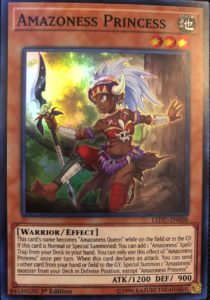
If you don’t know what a garage sale is, it’s when people haul a bunch of their stuff out onto their driveway, yard, or garage, and well, sell it. Some people are really into it, spending entire days driving around neighborhoods looking for garage sales. And like the smaller thrift shops, there’s the opportunity to negotiate prices, too.
These sales often consist of older folks selling their children’s old stuff. Kids from the 90s and early 2000s have grown up and moved out of their parent’s houses (hopefully!) and most of them left behind their old Yu-Gi-Oh card collection. The parents dig up the old boxes and sell them as “Kid’s Toys” for $10.
This is where you come in. It’ll take time and effort, but you’ll eventually find something good. There’s always the chance of finding other collectibles, too. There recently was a post on the Yu-Gi-Oh subreddit where someone had found a box full of Yu-Gi-Oh cards and other fun Yu-Gi-Oh stuff from the early 2000s.
Online options
Once you go online to look for used cards, the competition is cranked up a level and it’s difficult to find anything more than 10% under market price. However, supply is high and you’ll likely find any card you’re looking for.
eBay
eBay is the number one site for buying and selling used Yu-Gi-Oh cards. This is the best option if you just want to pick up some specific cards for around market value. There’s a lot to go over for eBay, so let’s look at some pros and cons.
Pros:
- All listings require photos.
- eBay customer support and Buyer’s Protection are pretty good.
- eBay recently implemented a third-party service to authenticate cards, highly reducing the number of fakes sold on their site.
- Massive supply.
- The largest selection of single cards on the internet.
- Easy to sell cards if you wish to do so.
- Best place to purchase Japanese cards
Cons:
- Sometimes the photos on a listing are terrible.
- Fake cards are sold frequently.
- Small chance of getting great deals.
- You don’t know how well the cards will be packaged for shipping.
The Yu-Gi-Oh card market is usually pretty steady, only seeing volatile behavior on certain cards from time to time. eBay is a large influence on the card market, often setting the value of individual cards.
By far the largest concern about buying on eBay is the possibility of receiving a fake card. And it’s a fair concern because it happens. However, eBay’s customer support is really helpful when it comes to this kind of transaction and they have a Buyer’s Protection program that can usually get your money back. But the key to not buying fake cards is knowing how to spot a fake.
Recently eBay has implemented an authentication service for cards over a certain value in the US. After the card is sold it must be sent to a third-party authentication service such as CGC, where it will be sent to the seller if authentic or returned to eBay is deemed a fake. The news of eBay implementing this service is brand new, so there are not a lot of fo details yet. However, this does show initiative on eBay’s part to prevent the sale of counterfeit cards. And that’s kind of a beautiful thing.
TCGPlayer, Troll And Toad
This is sort of the second-tier for buying used cards online. Both TCGPlayer.com and trollandtoad.com are highly respected and trusted by the trading card community. They also ship cards all over the world.
Both sites have a huge selection of singles all ranging from mint condition too heavily played or damaged. Prices stay fairly consistent with market value, give or take a few bucks, and TCGPlayer even has a market graph you can check out to see how that individual card has performed.
The largest downside to these sites is that the listings do not require photos. This results in picky collectors getting upset when a card is listed as lightly played (LP) and ends up being heavily played (HP). If this happens, customer service will usually credit you for the difference in condition or, in some cases, give a full refund.
Many members of the community have suggested various restraints to resolve this issue. For example, requiring photos on cards over a specific value. But we won’t get into that today!
Smaller vendors and communities
Finally, we come to the last category: Smaller vendors.
There are a lot of sites with a smaller selection and less stock, that have great prices and free or reasonable shipping. Many hobby shops have online stores as a way to sell their cards faster, so they can bring in more stock.
Amazon actually sells single Yu-Gi-Oh cards, but the selection is often limited and prices can be off. But still, a great option if they have the cards you want or are already making a purchase with them.
Coolstuffinc.com is another site that is relatively small but proving to hold a great reputation among the community.
Another option is to check social media communities and groups. Facebook has a lot of groups to buy/sell/trade Yu-Gi-Oh cards and sometimes even local groups.
Know what to look for
Now you have an idea of the best places to find used or second-hand Yu-Gi-Oh cards. Depending on what you’re after, you should know what you’re looking for.
If you’re new to the hobby, you’re at risk of overspending on cards. Some cards look valuable when really, they’re common and cost less than $2.
It’ll also be beneficial to learn about fake cards and how to spot them. There is no worse feeling than returning home to realize that you purchased fake cards.
Most of this will come with experience. You’ll learn about the hot spots in your area or the groups and sites that work well for you. It’s important to shop around and be patient. The more thorough you are, the more likely to find a gem that someone else missed!
Final Advice
Garage sales, thrift stores, and craigslist are great places to find Yu-Gi-Oh cards. If you’re looking to buy online, eBay is your best bet, but don’t expect to get a steal. The quickest way to find out if local stores have any Yu-Gi-Oh cards in stock is by calling them directly. Have you found any good deals on Yu-Gi-Oh cards lately?

Hi, I'm Oliver. I've been collecting Pokémon cards for 25+ years. I hope you enjoyed your read and learned something. Learn more about me on the About page.
